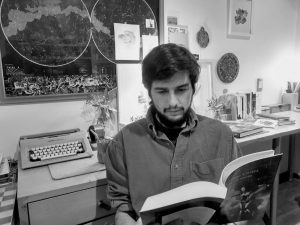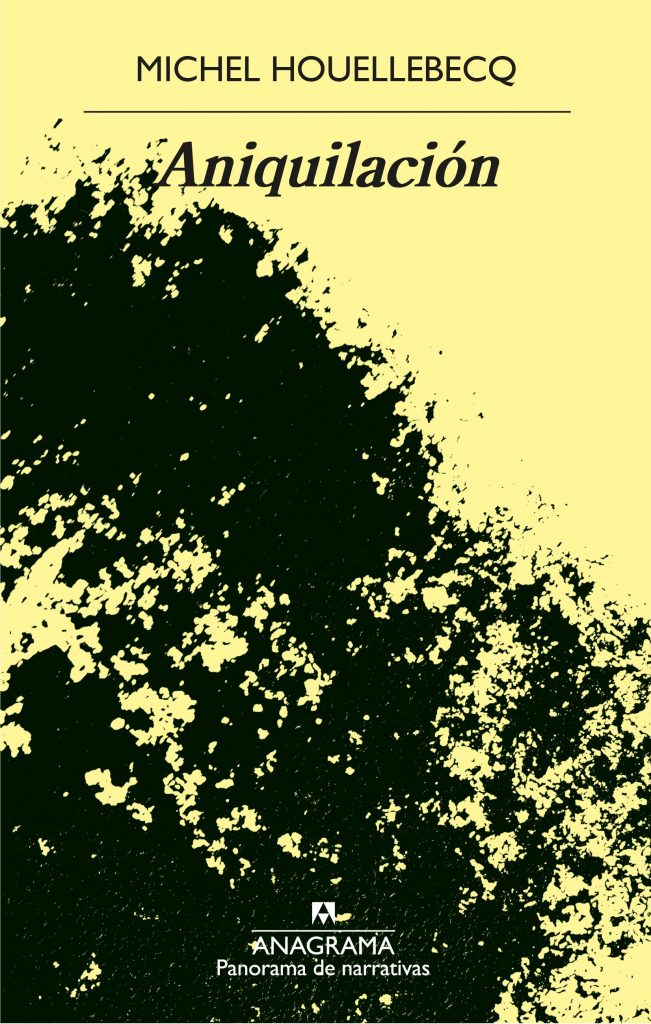On this occasion, the French author Michel Houellebecq supplies us with one of his greatest works, but through a different form than many expected, by opening new narrative registers and more familiar aesthetic nuances, and those that were conspicuous by their absence in his works. earlier novels.
By Alfonso Matus Santa Cruz
Posted on 9.8.2022
Chen one opens the pages of a novel entitled Annihilationespecially if it is the latest novelty of someone we could consider the grandson of a trio between Artaud, Stendhal and Schopenhauer (the irreverence, the limpid prose and the pessimism of a decadent esthete), the last thing he expects, or perhaps he does not last, but if an elusive and difficult intuition to have right off the bat, it is the story of a love that is reborn on the shores of chaos.
And it is that, beyond the background of the “eco-fascist” attacks by a mysterious cell of terrorists, most of the novel by Michel Houellebecq (1958), published by Editorial Anagrama, in its Spanish translation, revolves around Paul Raison — an acid and disillusioned middle-aged man, in the wake of other protagonists of his novels—, the right-hand man of the economy minister, Bruno Juge, of a government facing the possibility of re-election, and Prudence, his wife, with whom he had been cohabiting for a decade without practically exchanging a word.
Houellebecq never ceases to be the stirrer of consciences and the detective of the moral and ideological hypocrisies that abound in the secular, progressive and exasperated West, but the themes that have fascinated him throughout his narrative production —unbridled neoliberalism, the struggles of power, nihilism, terrorism and the mystery of mortality- give way to the family melodrama and the emotional and sexual oscillations of a couple trying to rebuild themselves while their respective parents slide towards the brink of death, one due to a stroke cerebral and the other for Parkinson’s.
The French poet and narrator has accustomed us, or the criticism that tries to pack him, to play the role of prophet of decadence, exploring how accelerated technological progress and ideological polarization are preying on the last vestiges of humanism, which at this point he looks like a cancer patient waiting for a second, third or fifth diagnosis.
The truth is that it is difficult to face reality, at least that feeling leaves the reading, but not because of a stark pessimism, but because of the promise of happiness, an epicurean and carnal happiness, which awaits us, if we have some fortune, when we we realize that the end is always near.
The age of digital alchemy
Those who were waiting for a fictional apocalypse keep waiting. 2027 is a complex and bittersweet year in the novel, as it may be in a few more months, but it is not the end of anything more than a handful or millions of lives, like the rest of the years.
After all, they always end up throwing dirt on us, as Pascal said, one of those thinkers who comes back to Paul’s mind over and over again.
The possibility of an “anarcho-primitivist” terrorism, inspired by Theodore Kaczynski’s manifesto, or the Unabomber, as it is popularly known, is not such a distant reality. What has already happened can be repeated, through transfiguration, in the book of history.
That lesson is already more than taken. That is one of the bets with which Houellebecq plays, although the mysterious group of terrorists is much more than just that, they are also first-rate hackers and are guided by black magic.
While the champions of rationality may not have been aware of such a slippery term as modern magic, it is not as rare as one might think. It is enough to probe the drag that the Instagram and Youtube accounts have dedicated to disseminating different magical techniques and rituals.
The era of digital alchemy is here to stay, that is what the French narrator knows, who is always attentive, rummaging through the chest of cultural trends that are hatching about to mature or explode in the most unexpected ways.
This novel that goes from the public to the private, exposing both the moves of political marketing (a true training imported from the entertainment industry) and the hardships to which old people embedded in wheelchairs and beds of the system are subjected of health, is woven with many layers and crossed stories that always end up returning to the couple relationship and the decline of the patriarchy, in a kind of straight elegy to the chin of the generation of the baby boomers.
And it does so by straddling an agile and direct prose with a tone so similar to the impression caused by morphine in terminally ill patients, with a melancholy that does not know whether to surrender to the imminence of death or speculate on the possibility of a reunion in the near future. life.
In this decadent mural invaded by existential doubts, spirituality and tenderness also have a place. Houellebecq gives us one of his greatest works, but not in the way that many expected, opening registers and more familiar nuances that were missing in his other novels.
***
Alfonso Matus Santa Cruz (1995) is a self-taught poet and writer who, after graduating from the Scuola Italiana Vittorio Montiglio in Santiago, studied sociology and philosophy at the University of Chile, later traveling around the southern cone performing various jobs, including which include the waiter, the barista and the forestry brigade.
He currently resides in the city of Puerto Varas, and has just published his first collection of poems, titled carve silences (Notebook Poiesis, 2021). He is also permanent editor of the Diario Cinema and Literature.
“Annihilation”, by Michel Houellebecq (Editorial Anagrama, 2022)

Alfonso Matus Santa Cruz
Outstanding image: Michel Houellebecq.
[Crítica] “Annihilation”: A melancholic elegy of modernity – Cinema and Literature

